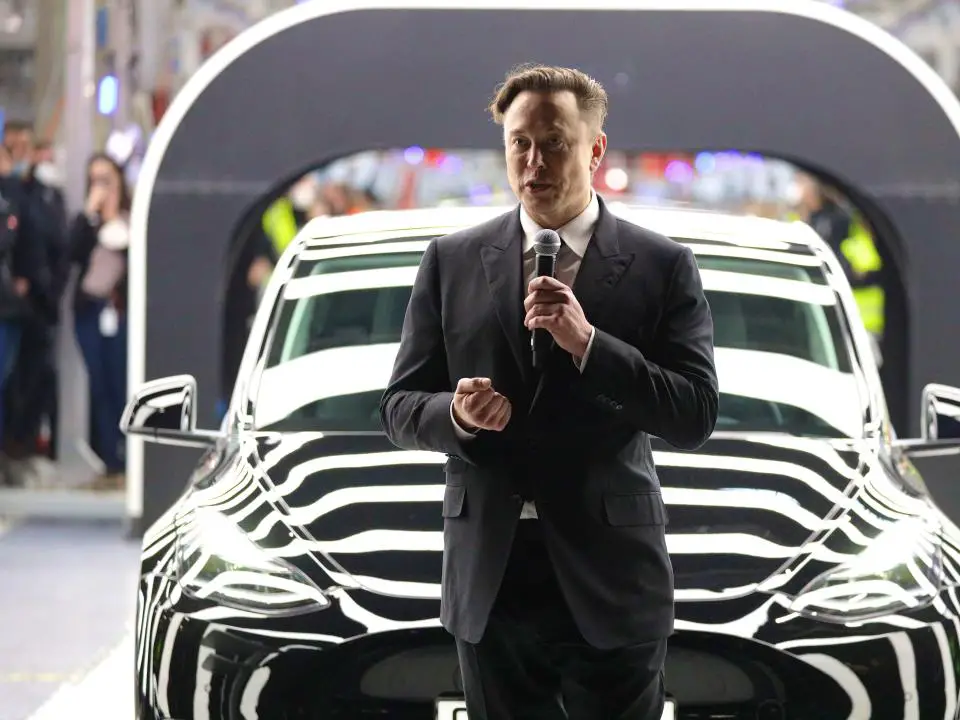Elon Musk fundamentally altered the course of the car industry. The world’s wealthiest man has sparked a truly green revolution in the automotive industry with Tesla, a producer of high-end electric cars, which has led to pledges from almost all automakers to develop fewer polluting vehicles in the next decade. The goal of General Motors Company, Ford, Volkswagen, Nissan, Hyundai, and Stellantis, the parent company of Fiat Chrysler, is to provide more electric cars. Even premium manufacturers like Ferrari are following suit.
The current increase in oil prices and its resulting consequence, increased gas costs at the pump, have given this revolution its full significance. Due to this new circumstance, wealthy nations like the United States and the European Union are turning once more to Saudi Arabia, the world’s largest oil exporter, to plead with it to increase oil production in order to lessen the impact on consumers who are already feeling the effects of inflation at levels not seen in many decades.
President Joe Biden’s trip to the Middle East recently, which took place as the midterm elections are approaching, was highlighted by his stop in the kingdom.
Using gas as a weapon
However, Biden had pledged to treat Saudi Arabia as a “pariah” while he was campaigning against former President Donald Trump, particularly in light of the 2018 murder of writer and critic of the Saudi government Jamal Khashoggi. After his election, he declassified a study that implicated Saudi Crown Prince Mohammed Bin Salman with the killing.
Following Moscow’s invasion of Ukraine on February 24, the European Union is on the Russian government’s side as it faces this horror. Despite imposing sanctions on Russia, the EU is stuck since Russia provides 40% of the natural gas that the EU buys. Vladimir Putin, the president of Russia, has profited from the influence this offers him over the nations of Europe.
To support the value of the ruble, Putin has insisted that the “hostile” countries of Europe pay for their gas in rubles. In response to Poland, Bulgaria, and Finland’s refusal, Russia shut off their supply. According to the EU, Russia’s behavior amounted to blackmail.
The EU promised to reduce its Russian gas imports by two-thirds within a year in March. Other measures, including a complete import embargo, have been more difficult to agree upon. The greatest economy in Europe, Germany, gets about half its gas from Russia. The restriction on Russian imports may result in a reduced oil supply for several European countries. Around 80% of the oil used in November by Finland and Lithuania came from Russia.
In this setting, David Sacks, a well-known entrepreneur and investor in businesses and internet startups, and Musk engaged in a Twitter conversation. Sacks were the one who initiated the thread by summarizing the year in geopolitics. The next communication in the same sequence commented on a Wall Street Journal piece that said Russia intends to use its gas as a weapon against the economy of Europe.
Lithium batteries are the new oil
Sacks said on July 13 that “if this year demonstrates anything, it’s that there can be no security without energy independence.” “The Europeans, in particular, have learned the hard way.”
At that point, Musk intervened.
Of course, the IT giant replied. And lithium batteries are the new oil, he said.
In our phones, computers, and vehicles, batteries are commonplace. Over the next 10 years, there will be a tenfold rise in demand for lithium-ion batteries, which have long been the dominating storage technology. The extremely high energy density and high specific energy of lithium-ion batteries are their benefits. Additionally, this kind of battery has a lower self-discharge and is not impacted by the memory effect.
Because they are simple to use, reasonably priced, and compatible with the majority of appliances and devices, lithium batteries are quite popular. According to experts, they are now the greatest options for delivering energy to moving objects like cameras or mobile phones, or moving automobiles (hybrid cars, electric cars). They don’t need upkeep.
The same specialists claim that lithium batteries may charge and discharge fast. They are less harmful to the environment than throwaway batteries and are lightweight.
Asia leads the consumer battery industry, with China, Korea, and Japan accounting for more than 90% of output. The major producers of lithium batteries include the Japanese company Panasonic, the South Korean companies LG and Samsung, and the Chinese companies CATL, BYD, and Grow. The only non-Asian business to squeak past these Asian behemoths is Tesla.
Source: The Street

